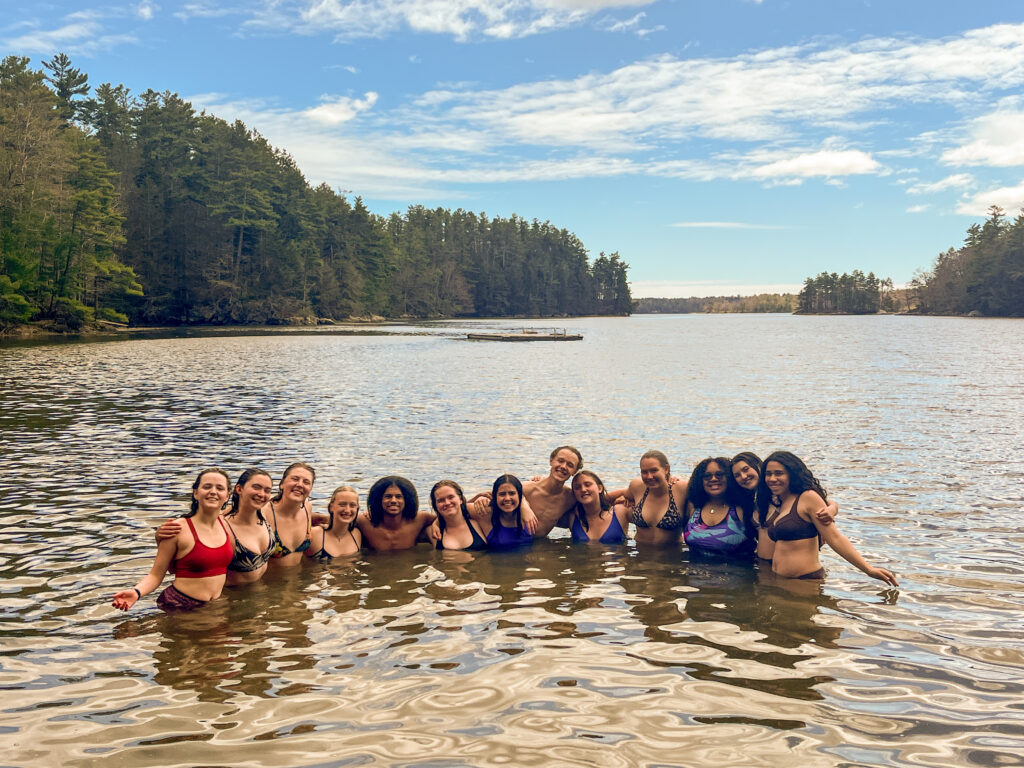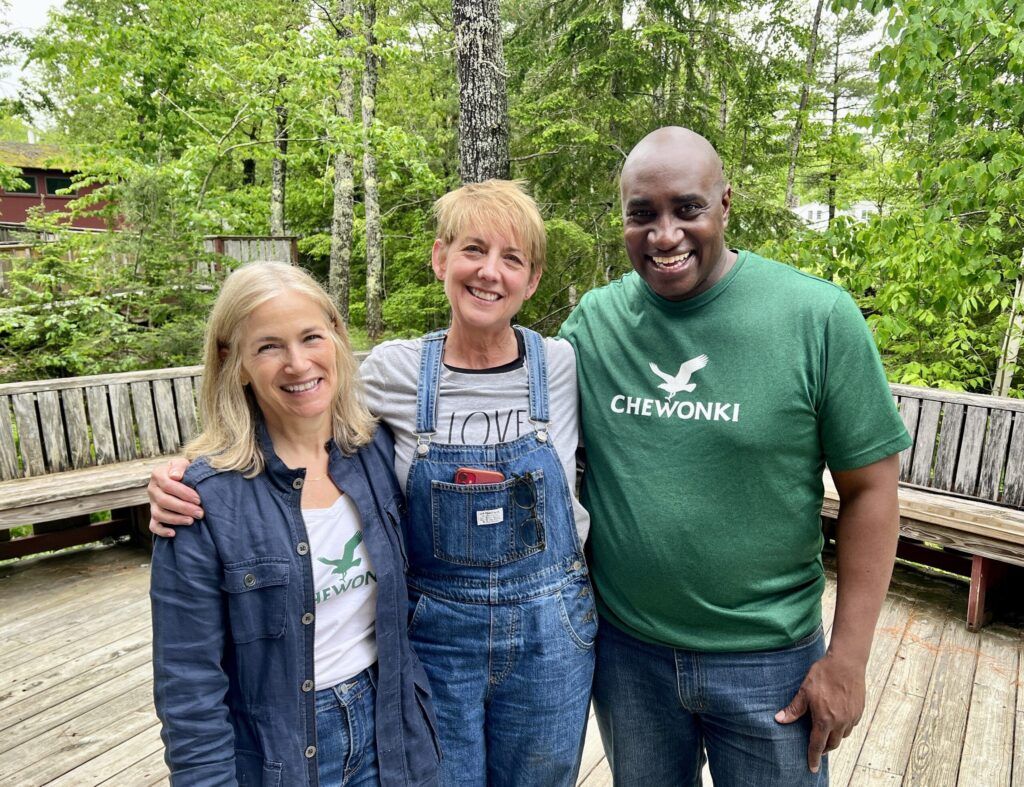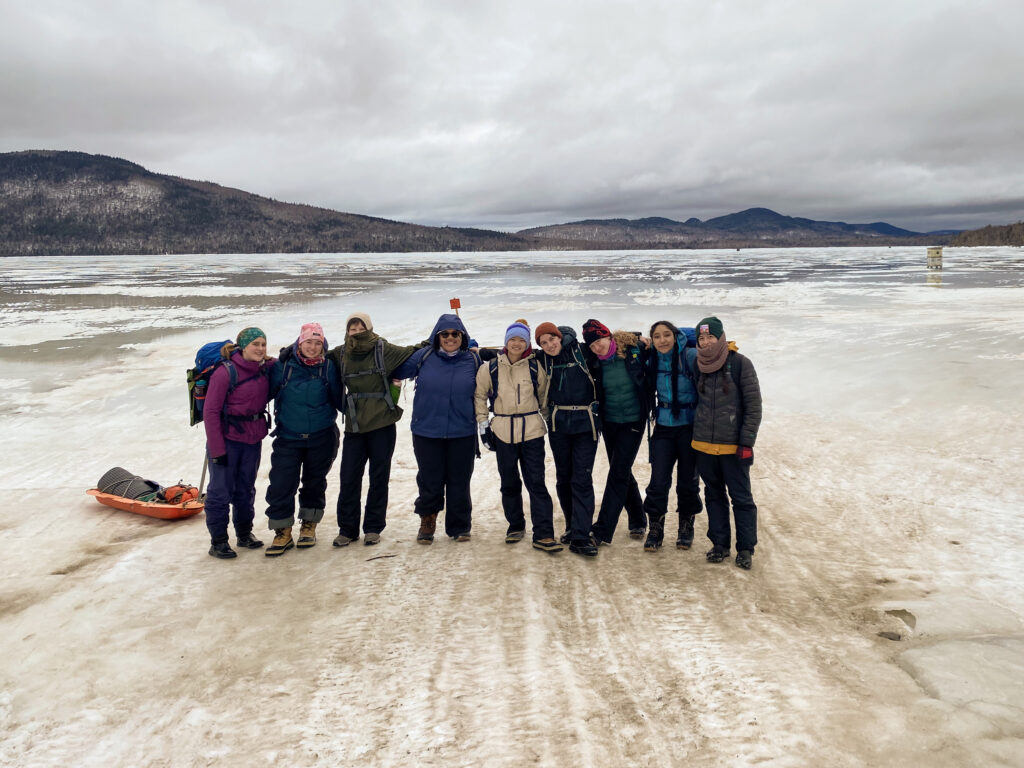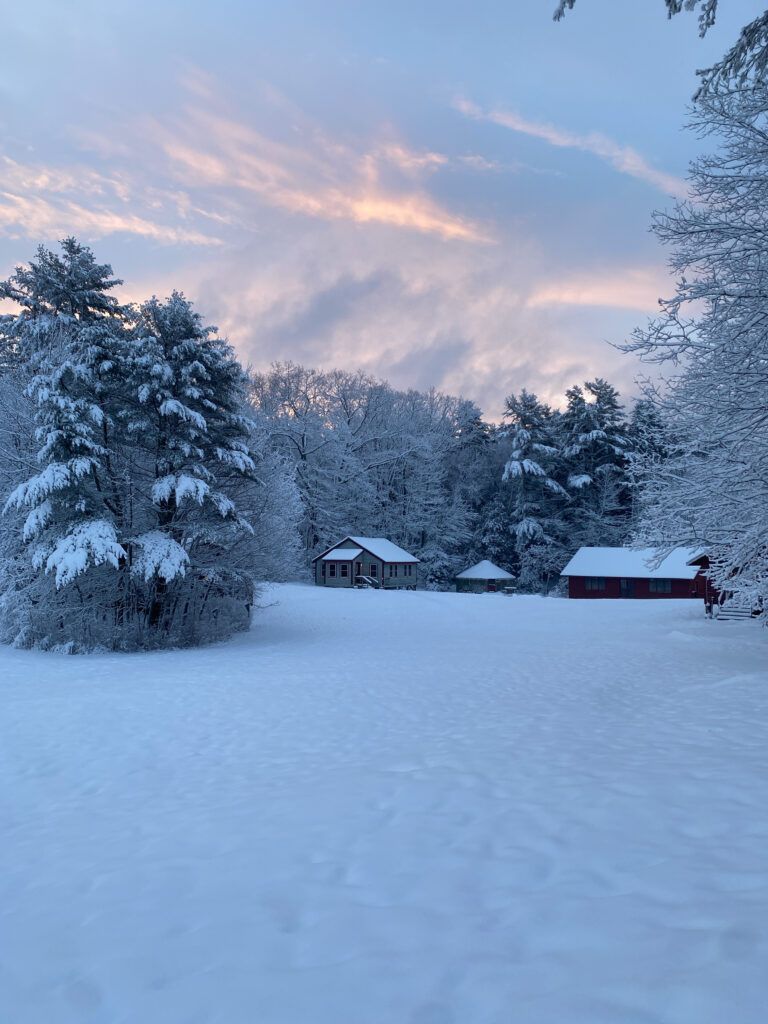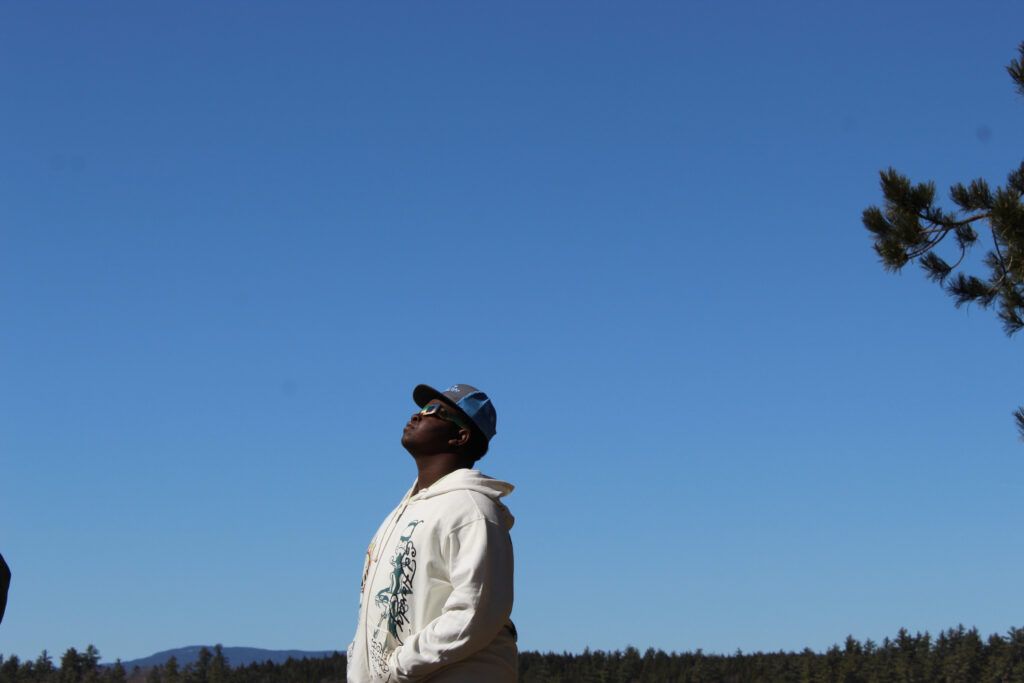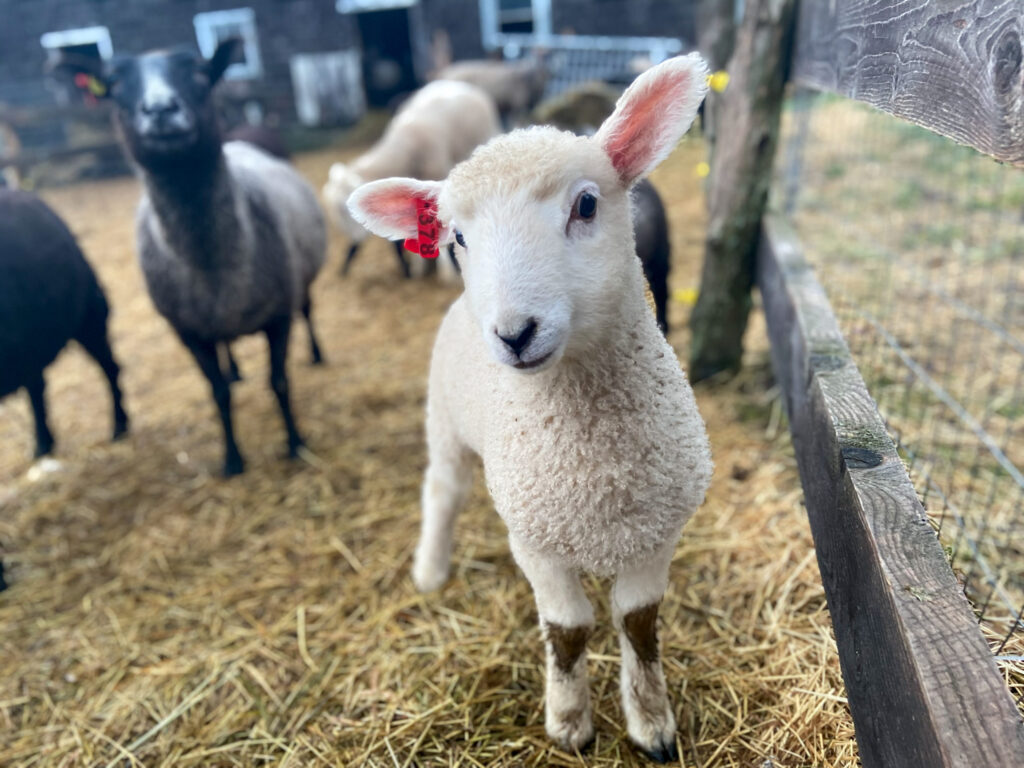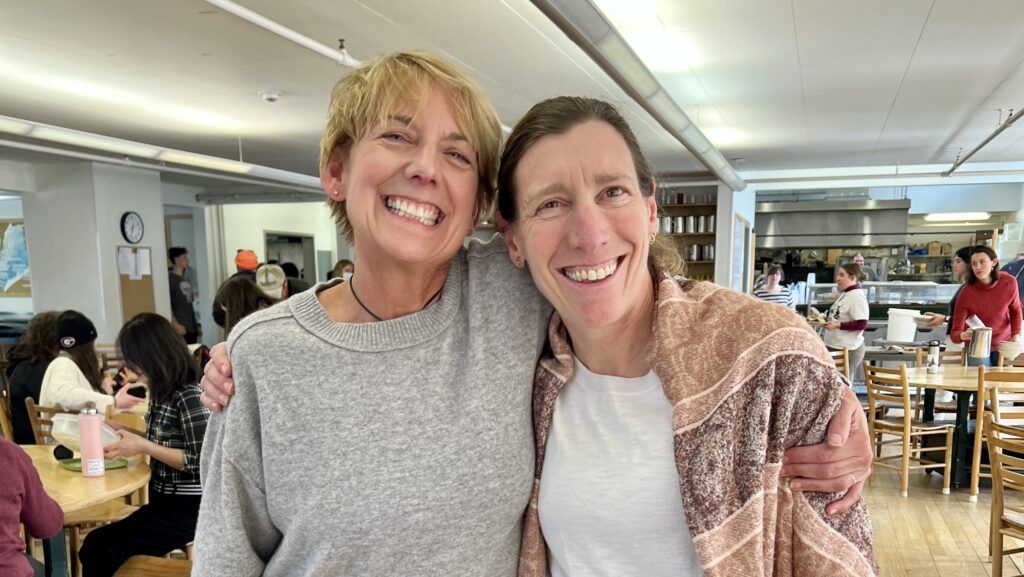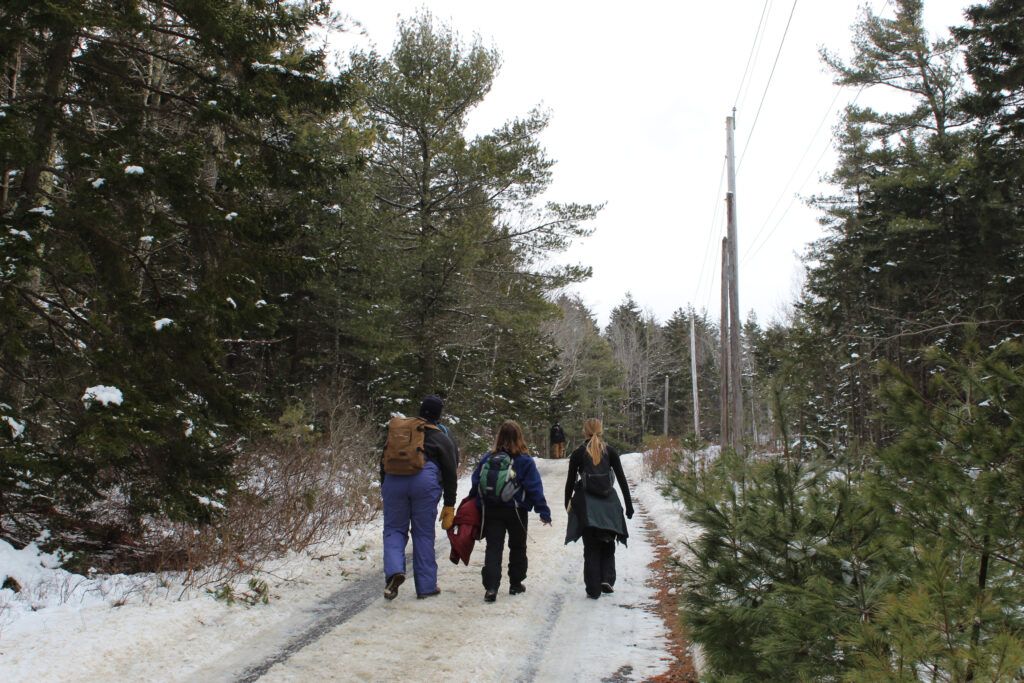Every Maine Coast Semester student has the chance to spend 48 hours camping alone on Chewonki Neck. They set off for their “solos” with the same basic supplies; what they do out there is up to them.
“This is a time all their own,” says teaching fellow Drew Higgins.
Semester 60 students went on their solos last weekend. Afterwards, they were brimming with thoughts. Some used the two days to reflect on their lives, connect with themselves, observe and appreciate nature. Some chose to catch up on sleep. Others read (homework not allowed), knit, write (letters or journals), paint, draw, watch the moon and the tide, listen to the birds. It’s their personal pocket of slow time–no conversations, no screens, no schedule, and a big change from Maine Coast Semester’s bustling community life.
This year, Holly Hoffman, a teaching fellow, helped strengthen the outdoor skills curriculum that prepares students for their two days alone in the woods. “We don’t want solos to be a big scary thing,” she says. “My goal is to give them, over the course of the semester, the skills they need to make their solos meaningful. We’re filling their backpacks so that when solos come around, they can draw on what they’ve learned.”
Competence, not to mention confidence, takes time. Throughout the semester, students visit a particular spot on Chewonki Neck to record changes in nature, part of their science studies. Though brief, these regular phenology sessions help students become comfortable in the woods and sharpen their powers of observation.
After they’ve been here for about a month, students leave Chewonki to go on a five-day wilderness expedition in remote locations around Maine. Together they learn outdoor skills as a group during this trip.
Later in the semester comes the four-day Outdoor Leadership Weekend. Students camp on the Neck for two days in small groups and spend the other two days getting wilderness first aid training. They also spend 30 minutes alone in the woods at night, getting a taste of what solos will be like.
Solos happen in the last month of the semester. Students settle into sites across our saltwater peninsula. They do not make contact with one another or with faculty, although someone regularly monitors a checkpoint to make sure all is well.
Some students come to Maine Coast Semester with lots of wilderness experience under their belts; for others, outdoor living is all new. No matter what their past expertise, “All students get something out of solos,” says Hoffman. “It just looks different for everyone.” There’s no rigid definition of success or failure. “If there is a curriculum benchmark at all, it’s how well students problem-solve in the moment using the resources they have at hand,” says Hoffman. For example, one girl last weekend discovered the ridgeline for holding up her tarp was too short. She improvised with a shoelace.
In their English course, Literature and the Land, Maine Coast Semester students spend a lot of time analyzing the relationship between people and place. On solos, for a couple of days, this intellectual inquiry becomes tangible. They immerse themselves in nature and pay attention to what it’s like to be alive, with few distractions. Maybe an owl calls. Maybe rain trickles off the tarp and dampens the back of their neck. Maybe a shooting star blazes by.
As Hoffman puts it, “It’s so different from most of their lives.”
View more photos of students getting ready for solos on our flickr page

